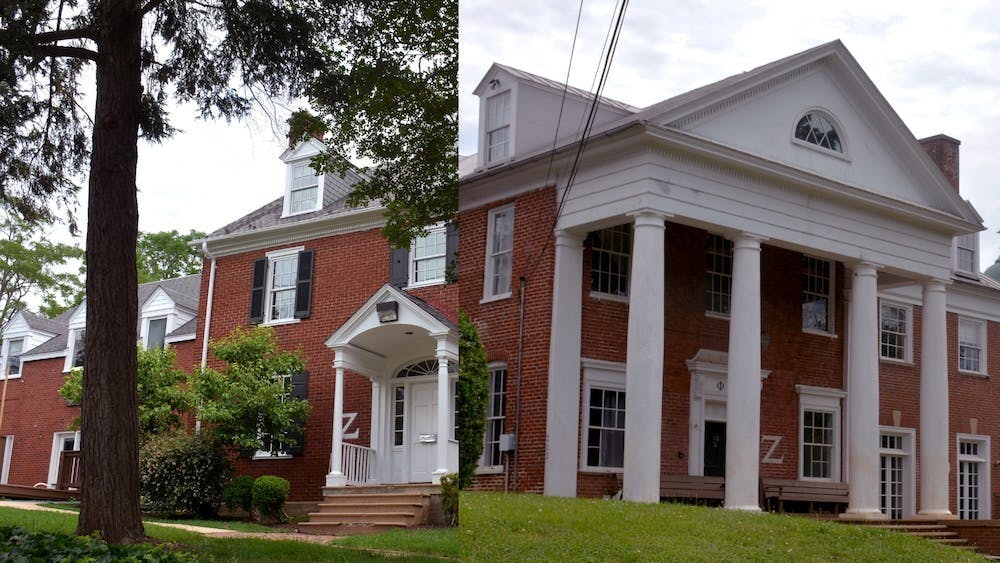Last semester, Kappa Alpha and Phi Gamma Delta committed dangerous — and illegal — actions against other students in the name of brotherhood. As a result of the hazing, both fraternities’ Fraternal Organization Agreements with the University were terminated, and Phi Gamma Delta’s charter was also revoked. One Phi Gamma Delta pledge was injured after an egg struck him, and brothers did not call for medical assistance. At Kappa Alpha, pledges were covered with hot sauce and flour, were instructed to smoke packs of cigarettes, partake in case races, perform push-ups and wall-sits, drive current brothers around and clean the chapter’s house weekly. A Hazing Misconduct Report also states pledges were beaten with coat hangers, smeared with hot sauce, instructed to drink 30-packs of beer and covered in flour after being sprayed with water.
Despite the University’s decision and the severity of these actions, Kappa Alpha national headquarters have decided to permit the fraternity to operate independently, while residents of the Phi Gamma Delta house continue to host functions under the name “Club 128.” Out of respect for the victims of their illegal behavior and to ensure safety, we demand these groups stop operating. To actually deter hazing and protect lives, we encourage students to not engage with them. Lastly, we hope this serves as a reminder that the University must be more proactive — rather than reactive — when it comes to preventing hazing.
These groups’ most recent offenses may be solely related to hazing, but make no mistake — recent history demonstrates a consistent indifference to rules. In fall 2020, Phi Gamma Delta was found in violation of SEC-045, which mandated mask-wearing and physical distancing throughout the pandemic. In both spring 2019 and 2020, Kappa Alpha failed to comply with IFC standards regarding alcohol. And as this most recent Hazing Misconduct Report shows, apparently the post-pandemic “normal” means hazing pledges.
The University was right to terminate Kappa Alpha and Phi Gamma Delta, but it can still do more to protect students before hazing begins. A message from Robyn Hadley, vice president and dean of students, clearly expresses disapproval for recent engagement with terminated fraternities. Rather than merely discouraging students from engaging with these organizations, however, the University should invest more in stopping hazing at its root. “Hoos Against Hazing” is a step in the right direction, but it does not serve as an adequate preventive measure on its own, neither for students nor the fraternity brothers forced to attend them. We believe it would be beneficial for these fraternities to hear directly from those most impacted by hazing. For example, the family of Adam Oakes — a VCU student who died in a hazing incident at Virginia Commonwealth University in 2021 — is developing an anti-hazing curriculum to present at schools across the state. Perhaps if these groups heard directly from people whose lives have been permanently affected by hazing, they might begin to recognize this behavior has consequences. More preventative measures are not just important, but necessary. Lives are at risk.
The main culprits, however, are the fraternities themselves. The University has already expressed its disapproval, so let us as an Editorial Board express ours — current and former members of these organizations should not be operating in any capacity after they have been found guilty of hazing. It is disrespectful, it is reckless and it is life-threatening.
While the institutions with power — the University and both of these fraternities — should be doing more, we must also address the student body. Phi Gamma Delta and Kappa Alpha are guilty of abusing fellow students. Engagement with these fraternities or any organizations who haze only propagates a sense of entitlement and disincentivizes any efforts to change. While the general student body is not to blame for the fraternities’ hazing, less engagement would indicate to these groups that we condemn what happened last year. We should care not only as responsible students, but as compassionate people — preventable hazing deaths happen every year, and not only on our Grounds. The University only has so much responsibility for students’ willingness to engage with dangerous organizations. We promise there are other parties.
Students, please stop engaging with these fraternities. U.Va., start preventing hazing instead of just reacting to it. Fraternities, hold yourselves to a higher standard — Phi Gamma Delta and Kappa Alpha, you exist to build brotherhood, not perpetuate violence against fellow students. You know better. It’s time to act like it.
The Cavalier Daily Editorial Board is composed of the Executive Editor, the Editor-in-Chief, the two Opinion Editors, the two Senior Associates and an Opinion Columnist. The board can be reached at eb@cavalierdaily.com.
CORRECTION: A previous version of this article misstates that Phi Gamma Delta was found guilty of beating pledges with coat hangers, smearing them with hot sauce, instructing them to drink 30-packs of beer and covering them in flour after spraying them with water. The article has been corrected to reflect that Phi Gamma Delta was found guilty of performing a hazing ritual in which a new member was struck in the eye with an egg and asked to be taken to the hospital, but no effort was made.







